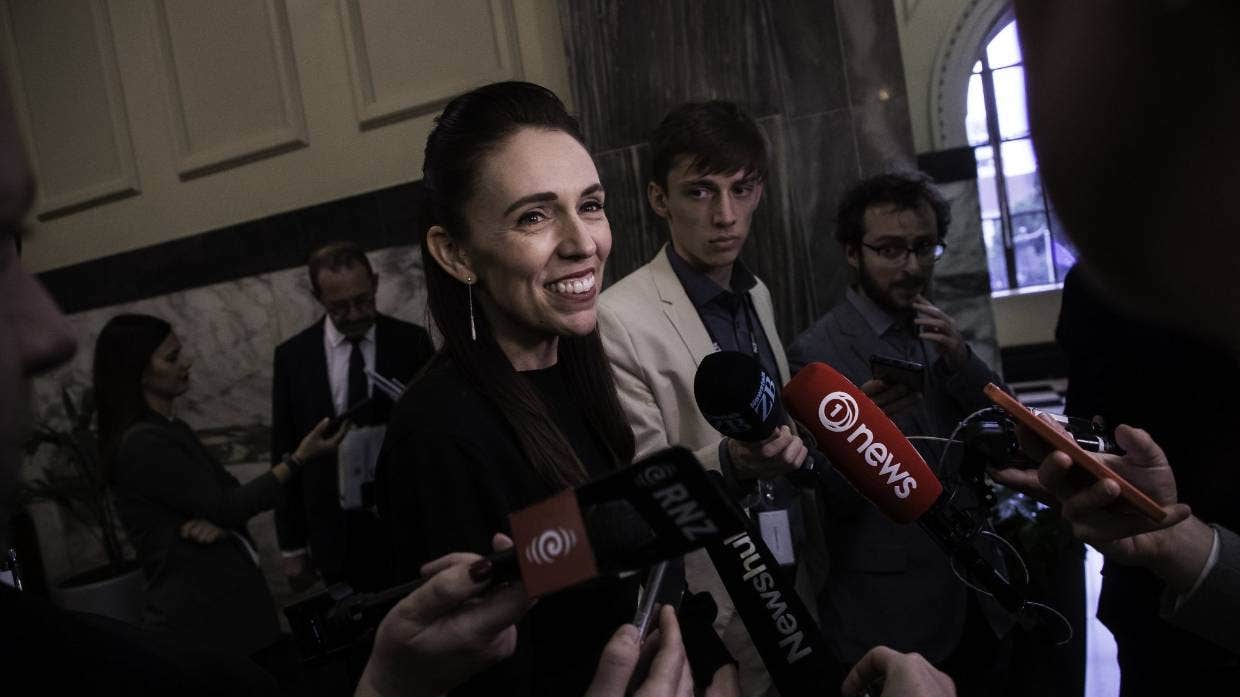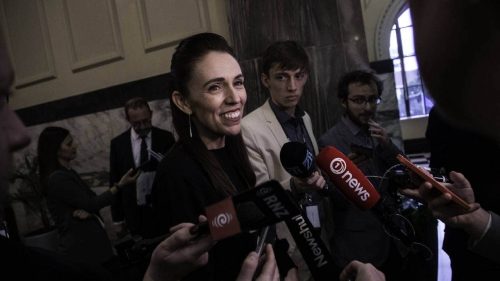Jacinda Arderns Christchurch Call globalises Islamophobia laws for over 100 countries against calling out the violent religion after expanding into several new European countries that have Islamic issues. Yet Jacinda Ardern refuses to address what the NZ media have revealed was the root cause for the Christchurch shooting that killed 51 people in March 2019, nor have they scrubbed Islamic sites of the propaganda that triggered Tarrant to target NZ.
Interestingly enough, many of the countries signing up are the same who have suffered Islamic terrorist attacks themselves recently. According to the Religion of Peace, in 2020 there were 2145 Islamic attacks in 53 countries, in which 10147 people were killed and 7726 injured. This was up from the 1761 attacks recorded in 2019.
The primary benefit of the Christchurch Call is not that it will stop “Islamophobia” but it will also stop Western countries being notified of the extent of Islamic terrorism in their own countries!
The irony is that there has never been a time when more muslims are gaining an education and reading the life of their prophet for themselves (available here) and finding out he’s not the blessed one their imams claim him to be. Even his child bride Aisha claimed the revelations were a matter of “It seems to me that your Lord hastens to satisfy your [sexual] desire”, and that was from the highest authorized source of his life!

The Christchurch Call has been joined by six more countries: the Czech Republic, Slovakia, Croatia, Estonia, Peru and Tunisia.
A second leaders summit was held for the Christchurch Call, an international effort to tackle terrorist and violent extremism content started by Prime Minister Jacinda Ardern and French President Emmanuel Macron, in the early hours of Saturday morning, New Zealand time.
Ardern beamed into the meeting from Wellington, joining Macron and Microsoft president Brad Smith among 14 leaders and 120 call members.
UK Prime Minister Boris Johnson recorded a statement for the event, and talked of the “tsunami of these manifestos of hate”. British authorities had discovered more than 314,500 pieces of terror material on the Internet in the past decade.
The United States, which joined the more than 50 governments and companies supporting the call a week before the summit, was represented by Secretary of State Antony Blinken.
The Christchurch Call was started after the Christchurch mosque terror attacks in 2019. Crisis response protocols developed between countries and companies have been used to expunge online broadcasts of terror attacks twice since 2019 – for livestreamed attacks in Halle, Germany, and Glendale, Arizona.
The effort has increasingly focused on the more difficult work of curbing radicalisation through tech companies’ algorithms, which are seen as pushing extreme content to Internet users.
“Algorithms are where many of us are looking to,” Ardern said.
“From the call membership you see the view that the existence of algorithms themselves is not necessarily the problem, it’s whether or not they are being ethically used.”
The tech companies, including Facebook and Twitter, had a desire to talk about whether the algorithms could be used for “positive interventions” to prevent radicalisation and had already made significant changes, she said.
“One of the things that we’re all very mindful of is that we can talk about the interventions in the way that harmful content is either shut down … We can talk about whether or not algorithms lead people into dangerous places … But ultimately what we want are citizens themselves who are resilient in an online world.”
Asked about whether the US was willing to sufficiently regulate the tech companies, given that companies have legal immunity in the US over the material they publish, Ardern said regulation was not the only tool to curb terrorism and radicalisation online.
“The US has a number of regulatory issues that it’s continuing to work through in its domestic contact … They have a particular take on the way that platforms are treated as a publisher or not,” Ardern said.
In her opening statement to the summit, Ardern said the Christchurch Call needed to improve in three ways. The community behind the call needed to become “self-sustaining”, and the crisis response protocols needed to be improved.
“We understand how algorithms, at-risk Internet users, and extreme networks interact on the path to radicalisation.”
Smith, the president of Microsoft, said in an opening statement that his company remained fully committed to the call and wanted to ensure the Internet was a “force for good”.
“We must address the role that algorithmic outcomes play in an individual’s path towards violent extremism, and ultimately towards violent action,” he said.
Johnson, in his recorded message, said terrorist content was a “metastasising tumour within the Internet – a series of tumours”.
“We’ve just launched the new legislation that will require all these tech giants swiftly to identify and take down illegal content, and they can be very good at it sometimes, but there’s clearly much more room for them to do more,” he said, offering to share the legislation with other countries.
InternetNZ’s chief executive Jordan Carter said the workplan agreed to on Saturday was an important step and said it was committed to being part of the Christchurch Call community to tackle the rise of terrorism and violent extremism online while ensuring a free and open Internet and respect for human rights.
Its international chief advisor Dr Ellen Strickland said the challenge would be the ongoing commitment to continue working together and making progress.
Christchurch Call focuses on tech companies’ algorithms, six countries join

